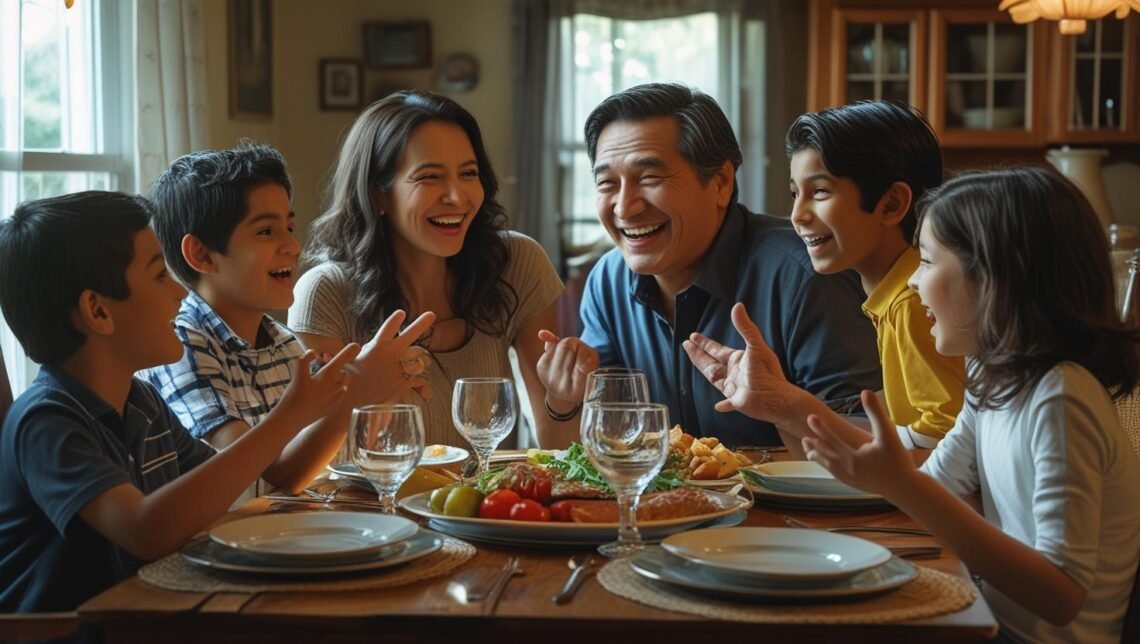On finding truth in an age of misinformation
There was a time, not long ago, when disagreement was considered a kind of civic virtue. My siblings and I, along with our father would often have these “animated” after dinner conversations. Sometimes the debate might grow heated, but it was understood that truth, like good port, required airing. Somewhere amidst the tension, a deeper understanding might emerge.
Today, that kind of engagement feels like a relic.
We now live in a world not merely divided, but algorithmically fragmented. Each of us walks around with a personalised reality in our pocket, one tailored to our preferences, prejudices, and browsing history. We are nudged, prompted, and prodded by invisible hands toward whatever content is most likely to confirm what we already believe.
This is the new crisis of our age: not only that misinformation abounds, but that we no longer know how to trust, each other, institutions, even our own judgment. We swim in a sea of headlines, memes, manipulated images, half-truths dressed as clarity. And amidst the noise, hope begins to erode because we no longer know what is real.
I have found myself increasingly cautious in conversation, not out of fear, but out of uncertainty. What sources can be trusted? Which narrative holds water? Whose version of the story are we listening to, and what has been left out?
It is deeply disorienting. And disorientation, over time, gives way to despair.
Yet, if there is one lesson I have gleaned from long walks through libraries and small talk with monks and meteorologists alike, it is this: truth is rarely loud. It does not shout over the crowd. It does not trend. It does not arrive in headlines or hashtags. Truth, like hope, comes quietly, often hidden in nuance and silence.
In an age of misinformation, therefore, the curator of hope must become a student of discernment.
This is not merely an intellectual exercise. It is a spiritual discipline. Discernment asks us to slow down when everything around us demands reaction. It invites us to listen to sources, but more deeply to the resonance of the soul. Does this narrative stir compassion or contempt? Does it clarify or distort? Does it honour complexity, or flatten it into caricature?
We must also ask: Who is not being heard? In a world of curated content, many voices fall through the cracks, those without influence, without polish, without platforms. And yet, these are often the very voices closest to the truth. Truth, I have noticed, tends to dwell in unlikely places, in back kitchens, in late-night confessionals, in the raw poetry of those who have nothing left to lose, in the margins.
To curate hope is to become a custodian of this deeper, slower, more grounded kind of truth. It is to resist the urge to repost, retweet, and react without reflection. It is to read long articles (and blogs!), ask uncomfortable questions, and admit when we don’t yet know.
It is also, crucially, to remain human in our disagreements.
You see, the greatest casualty of misinformation may not be knowledge, it may be kindness. As the digital tide grows more divisive, we become quicker to label and attack. But hope cannot grow in scorched earth. It needs a gentler soil, tilled by dialogue and fertilised with grace.
This is why, despite the murk, I remain hopeful.
Because I have seen people choose a different path. I have watched teenagers fact-check viral posts before sharing. I have listened to old friends on opposite ends of the political spectrum commit to monthly calls to try to understand. I know artists crafting spaces where nuance is honoured and truth is discovered together.
They remind me that even now, in this fractured digital landscape, it is still possible to create little sanctuaries of truthfulness. And it is in these sanctuaries that hope takes root.
This week, I invite you to practice discernment.
Choose one headline—just one—and trace it back. Read across perspectives. Seek out those who are directly affected by the issue. Listen, not for the answer, but for the fuller story.
Then, share what you’ve learned not to win an argument, but to widen a conversation.
Alternatively, seek out someone whose perspective differs from your own, and invite a conversation marked by curiosity. Ask, “Tell me how you see it?”, and mean it.
For in a world drowning in curated truths, your willingness to listen, learn, and love across difference may be the most radical form of hope there is.





